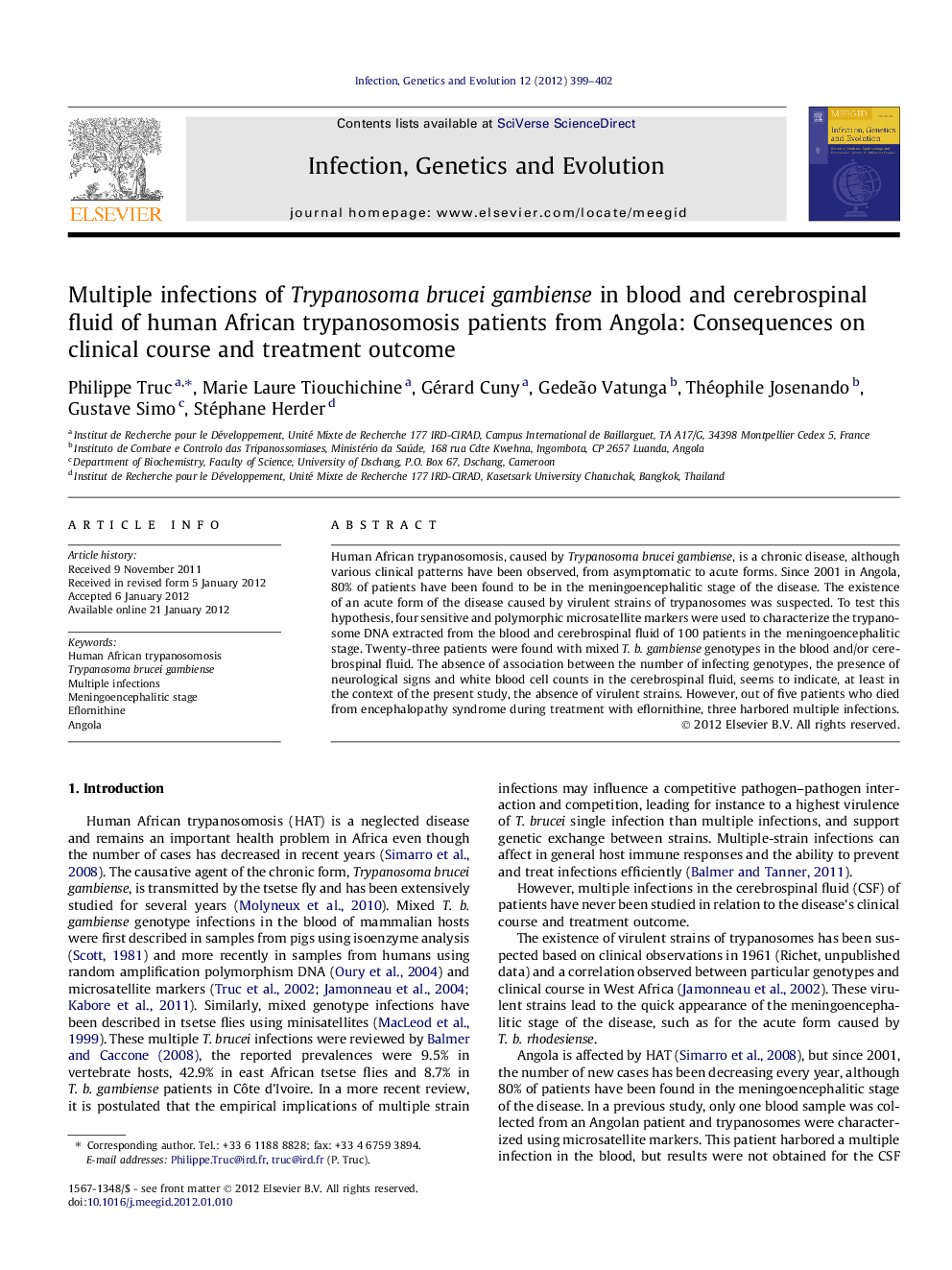| Article ID | Journal | Published Year | Pages | File Type |
|---|---|---|---|---|
| 5911503 | Infection, Genetics and Evolution | 2012 | 4 Pages |
Human African trypanosomosis, caused by Trypanosoma brucei gambiense, is a chronic disease, although various clinical patterns have been observed, from asymptomatic to acute forms. Since 2001 in Angola, 80% of patients have been found to be in the meningoencephalitic stage of the disease. The existence of an acute form of the disease caused by virulent strains of trypanosomes was suspected. To test this hypothesis, four sensitive and polymorphic microsatellite markers were used to characterize the trypanosome DNA extracted from the blood and cerebrospinal fluid of 100 patients in the meningoencephalitic stage. Twenty-three patients were found with mixed T. b. gambiense genotypes in the blood and/or cerebrospinal fluid. The absence of association between the number of infecting genotypes, the presence of neurological signs and white blood cell counts in the cerebrospinal fluid, seems to indicate, at least in the context of the present study, the absence of virulent strains. However, out of five patients who died from encephalopathy syndrome during treatment with eflornithine, three harbored multiple infections.
⺠The study involves 100 sleeping sickness patients in neurological stage from Angola. ⺠Twenty-three patients show multiple infections of trypanosomes. ⺠Parasite genotypes are different between blood and cerebrospinal fluid. ⺠No significant correlation was observed between genotypes and neurological signs. ⺠Multiple infections may influence treatment outcome using eflornithine.
